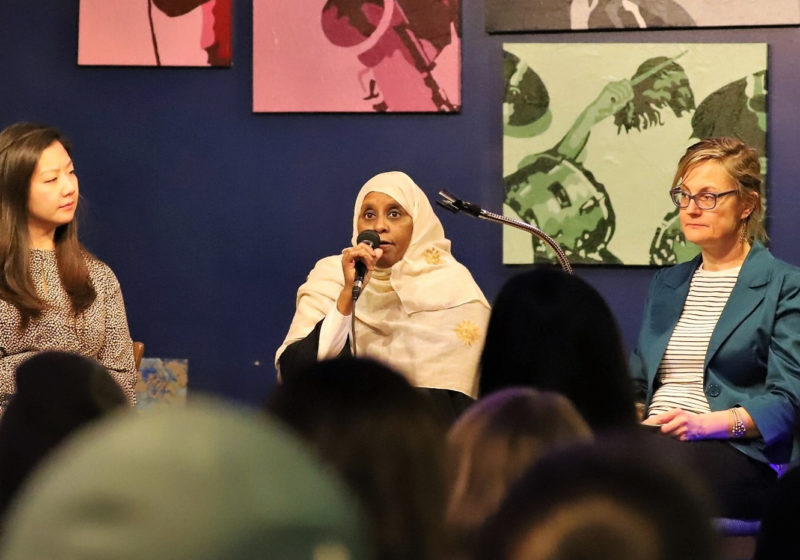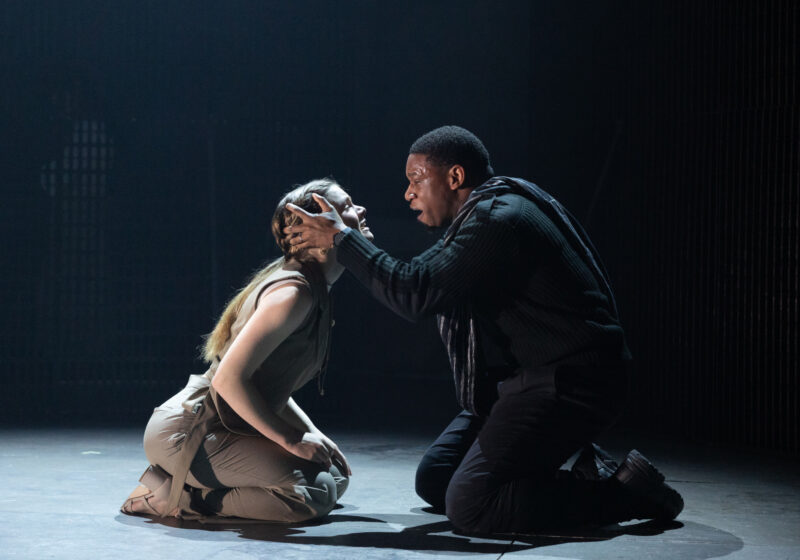Community organization Refugees Helping Refugees shed light on the value of Rochester’s considerably large refugee community at Brue coffee this past Monday.
The panel discussion, chaired by organization employees Sadiya Omar, Pia Møller and Pamela Kim Adams marked the first event of the 2019 series “Breaking the Bubble,” an initiative by the Rochester Center for Community Leadership and Brue Coffee designed to strengthen ties between UR students and their surrounding community.
Omar, who co-founded the organization, talked about her experiences as a refugee in Kenya and the United States. Born in Somalia, Omar fled her home country after the outbreak of civil war in 1991. “I didn’t want to leave my country,” Omar told the crowd. “I was forced to leave.”
Omar also touched on the often dehumanizing parts of her journey to safety. Those who died along the way to the refugee camp in Mombasa, Kenya could not be given a proper burial. Those who made it found that people were unwilling to look at them as anything other than refugees. “We lost our identity,” Omar said.
Omar’s pain did not stop her from helping others. She became an activist, opposing child marriage within the camp and encouraging girls to go to school. Her work, which put offenders in jail, also earned her enemies. After her life was threatened and her house was set on fire, Omar began seeking asylum in the United States.
“Getting asylum,” Omar said, “is like winning the lottery.” Møller, director of programs, agreed with her, adding that 1 percent of all refugees in camps get re-settled to another country.
Omar considers herself one of the lucky ones, but when she first arrived to the U.S.,she had no idea what to expect. For a short while, she could rely on the Refugee center, but “after 90 days, you are on your own,” Omar said. So she formed the refugee support group that would become Refugees Helping Refugees.
Adams, who works as a case manager at the organization, highlighted the multifaceted approach required to support their clients, who are often hampered by both linguistic and cultural barriers.
“It’s not as simple as getting an interpreter,” Adams said, giving the example of a mother she supported through the legal process of getting divorced from her abusive husband.
Adams also explained that raising awareness of refugees’ stories was an integral part of their work, since stories like Omar’s helped dispel the notion that refugees were a burden on society.
In response to a question from the audience, Omar pointed out many ways students could make a difference by supporting a single family. Students could give lifts to doctor’s appointments, or advocate on behalf of refugee children in their schools, she said.
Adams encouraged UR students to get involved with the Refugee Student Alliance on campus and elaborated that volunteers could work over the summer, or on a weekly basis.
For junior Quinlynn Murphy, the panel gave her a new outlook on the issue by giving it a face.
“I didn’t know anyone who was a refugee,” Murphy said. “Going forward, I want to help and do what I can.”




